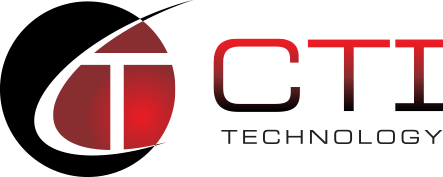CTI Technology: 2024 Chicago Law Firm Guide to Software Investments
In the rapidly evolving legal landscape, Chicago law firms must stay ahead of the curve by investing in innovative software and technology. CTI Technology, a leading IT service provider for law firms, has recently released its 2024 Chicago Law Firm Guide to Investing in Software. This comprehensive guide aims to assist law firms in making informed decisions on the most effective software investments to streamline operations, enhance client service, and expand their reach.
The 2024 Chicago Law Firm Guide dives deep into multiple facets of software investment, tackling subjects ranging from understanding legal aspects to identifying the most crucial aspects of software investment for law firms. CTI Technology paves the way for Chicago law firms, highlighting the interrelation between law and software and emphasizing technology’s vital role in driving the legal sector’s future.
Key Takeaways
- The guide assists law firms in making informed software investment decisions.
- CTI Technology emphasizes the importance of technology in the legal sector
- The guide covers various aspects, from legalities to the future of software investment
Download CTI’s Law Firm Software Buyers Guide Here
Understanding The 2024 Chicago Law Firm Guide
The 2024 Chicago Law Firm Guide to Investing in Software aims to help law firms navigate the rapidly evolving legal technology landscape. The guide provides insights, recommendations, and strategies for law firms to adopt and invest in advanced technologies to enhance their productivity and competitiveness.
One key aspect covered in the guide is integrating Artificial Intelligence (AI) and Computer Telephony Integration (CTI) solutions. These technologies can help law firms streamline operations, enhance client services, and expand their reach. By leveraging AI-powered tools, law firms can automate tasks such as document analysis, contract drafting, and case research, allowing attorneys to focus on more critical aspects of their work.
CTI solutions, on the other hand, can improve communication and collaboration between attorneys, clients, and third parties. With CTI systems, law firms can benefit from improved call handling, real-time collaboration, and better client data management.
Moreover, the guide highlights the growing importance of data security and compliance, with the expansion of the definition of “financial institution” under the FTC Safeguard Rules. This change, taking effect on June 9, 2023, increases business compliance requirements when handling customer information, so investing in technologies that ensure data protection and security becomes essential for law firms.
Besides these aspects, the guide discusses the challenges law firms face when tackling digital transformation and provides practical advice on overcoming them. For instance, it emphasizes the need for a roadmap to guide the firm’s digital transformation efforts and offers tips on choosing the right technology partners to ensure a successful outcome.
In short, the 2024 Chicago Law Firm Guide to Investing in Software is a valuable resource for law firms looking to enhance their service offerings and competitiveness through technology adoption.
Decoding CTI Technology
CTI Technology has been a trusted managed IT service provider in the Chicagoland area since 2004, offering tailored solutions to businesses in various industries, such as healthcare and law firms. Their IT security and privacy management expertise aims to increase their clients’ efficiency, mobility, and productivity.
As technology advances, CTI Technology is helping law firms embrace new technologies like artificial intelligence (AI) and computer telephony integration (CTI). As demands for efficient and high-quality client service increase, implementing these technological solutions is essential for any modern law firm in Chicago.
AI assists law firms in automating daily tasks, organizing vast amounts of data, and providing insights to make better-informed decisions. With CTI, law firms enjoy improved communication and collaboration between team members, clients, and partners. These technologies streamline operations, reduce costs, and enhance client service quality.
Moreover, CTI Technology is a leader in driving sustainable practices in the legal sector. Implementing green IT initiatives and energy-efficient infrastructures enables law firms to adopt digital transformation strategies that reduce their carbon footprint and embrace environmentally friendly practices.
In anticipation of the many challenges facing law firms in 2024 and beyond, CTI Technology’s 2024 Chicago Law Firm Guide to Investing in Software aims to equip law firms with the information they need to stay competitive in the face of rapid change. This comprehensive guide will cover new developments in AI, CTI, cybersecurity, and green technology, helping law firms make smart decisions when investing in software solutions.
In conclusion, CTI Technology is a reliable partner for Chicago law firms looking to stay ahead of the curve. Understanding the legal sector’s unique challenges and providing tailor-made solutions pave the way for a more efficient, productive, and sustainable future in law.
Identifying Key Investment Facets In Software
As the world of the law becomes increasingly digitized, it is crucial for Chicago law firms to carefully evaluate their software investments to ensure a well-rounded and efficient practice. This 2024 guide aims to help firms identify the key facets to consider when investing in software solutions.
- Security and Privacy: The legal industry inherently deals with sensitive information. When investing in software, prioritize features that protect your clients’ data and maintain privacy. Ensure the software provider incorporates robust security measures like encryption and multi-factor authentication.
- Mobility and Accessibility: A top priority for modern law firms is to enable employees to access data and resources from any location. Cloud-based solutions should offer seamless integration and synchronization with various devices like smartphones and tablets. Additionally, consider the software’s compatibility with relevant legal document formats and case management systems.
- Integration and Interoperability: Seek software solutions that seamlessly integrate with your existing systems, such as document management, billing, and accounting. This will save time, reduce errors, and ensure a cohesive working environment. Open APIs and standardized data formats can facilitate smoother integration with other software platforms.
- Scalability and Cost-effectiveness: As your law firm grows, your software needs to keep pace. Assess whether the software offers scalability and adjustable pricing structures based on your firm’s growth trajectory. An effective solution should be able to expand without incurring excessive costs or causing disruptions to your operations.
- User Experience and Support: A complex interface can hinder productivity and increase user frustration. The best software solutions combine powerful features with user-friendly interfaces. Don’t overlook the importance of responsive technical support and available training resources, facilitating a smoother onboarding process and ongoing assistance when needed.
By assessing these key investment facets, Chicago law firms can better identify the software solutions that best align with their goals and requirements, ultimately improving efficiency and minimizing potential risks.
Discussing Legal Aspects Of Software Investment
When investing in software for Chicago law firms, several legal aspects must be considered. CTI Technology, a leading provider of IT services and support for law firms in the Chicago area, understands the importance of addressing these aspects to ensure wise investments in software solutions.
One of the key legal aspects of software investment is compliance with data protection and privacy laws. Law firms manage a significant amount of sensitive client information, making it imperative for them to choose software solutions that prioritize data security. In the United States, there are regulations such as the Health Insurance Portability and Accountability Act (HIPAA) and the California Consumer Privacy Act (CCPA) to comply with, depending on the nature of a law firm’s clientele. Choosing software that adheres to these legal guidelines can help protect client data and prevent potential fines or litigation.
Another legal aspect to consider when investing in software is licensing agreements. Software licenses are legal contracts that outline the terms and conditions of using a particular software product. Law firms should carefully evaluate the terms and conditions of these licenses to ensure that they comply with the intellectual property rights of the software.
In addition to licensing agreements, law firms should also consider the impact of third-party integrations on their software investments. Many legal software solutions rely on integrations with other products and services—for example, document management systems or e-discovery tools. Ensuring these integrations comply with relevant laws and industry standards can be crucial in maintaining a secure and compliant software ecosystem.
Finally, law firms should consider the potential legal risks of investing in new or emerging technologies. Investing in cutting-edge software solutions can provide numerous advantages but also introduce potential vulnerabilities and regulatory challenges. It is essential to weigh these factors carefully and consult with knowledgeable IT partners such as CTI Technology to ensure that any software investments are secure and legally compliant.
In summary, law firms in Chicago must navigate various legal aspects when investing in software solutions. By considering data protection, licensing agreements, third-party integrations, and the potential risks of emerging technologies, they can make informed decisions that support their practice’s long-term success.
The Interrelation Between Law And Software
As technology advances, the relationship between law and software becomes increasingly intertwined. With the rapid influx of digital tools in all aspects of life, legal professionals need to adapt and understand how these technological advancements can benefit the practice of law.
Balancing Efficiency and Security
Investing in software allows law firms to streamline their workflow, automate repetitive tasks, and improve overall efficiency. Various platforms, such as case management software, document management systems, and time tracking tools, enable legal professionals to work more effectively. However, these benefits must be balanced against the ever-growing need for robust cybersecurity measures. Law firms are responsible for huge amounts of sensitive client data, and investments in technology must prioritize protecting this information.
Navigating Legal Compliance
Integration of new technology must also be done with due consideration for the numerous laws, regulations, and ethical rules that govern the legal industry. In Chicago, law firms must adhere to the Illinois Rules of Professional Conduct, which outline attorneys’ responsibilities regarding client confidentiality and the ethical use of technology. When considering software investments, the compliance aspect should not be overlooked.
Leveraging Artificial Intelligence
One area of rapid technological development is artificial intelligence (AI), which holds the potential to revolutionize legal practice. AI-powered tools can assist attorneys in legal research, document review, and predictive analytics. However, there are concerns relating to the infallibility of these systems and the potential ethical implications of relying on AI. Law firms must tread carefully when implementing these advancements to ensure they are used responsibly and within the bounds of acceptable legal practice.
In conclusion, as CTI Technology releases the 2024 Chicago Law Firm Guide to Investing in Software, legal professionals must understand the interplay between law and software. Striking the delicate balance between adopting new technologies and remaining compliant with existing legal frameworks is the key to future-proofing law firms in an era of constant technological change.
CTI Technology’s Role In Law Firm Software Investment
CTI Technology has been at the forefront of providing comprehensive IT services to the legal industry for many years. Their team of professionals excels at helping law firms stay ahead of the curve by investing in the right software tools.
One of CTI Technology’s main focuses is understanding law firms’ unique needs and identifying the most suitable software solutions that cater to their specific requirements. CTI Technology’s expertise ranges from productivity tools to case management applications, contributing to efficient law firm operations.
CTI Technology also emphasizes the importance of digital transformation in the legal industry. As the recent Digital Maturity Report from the Thomson Reuters Institute highlights, law firm leaders must fully embrace the software revolution to thrive in a competitive market.
In addition, CTI Technology offers IT support services for law firms throughout Chicago and the Chicagoland area. Their legal IT team ensures a smooth implementation of new software investments. It provides ongoing assistance with system maintenance, troubleshooting, and updates so that law firms can focus on their core competencies without worrying about technical disruptions.
Investing in software solutions is not just about acquiring new tools but also allocating an adequate IT budget and adopting sustainable practices in law firms. CTI Technology assists law firms in the creation of an IT budget, as well as driving sustainability efforts through innovative IT solutions.
In summary, CTI Technology is crucial in helping Chicago law firms make informed software investment decisions, supporting them through the implementation process, and ensuring the seamless integration of these tools into their daily operations.
Future Prospects In Software Investment
With the rapid technological advancements and ever-evolving business environment, the importance of investing in software solutions for law firms has grown significantly. This section explores some key future prospects in software investment for Chicago law firms, especially in the context of CTI Technology’s offerings.
- Embracing AI-Powered Solutions: Artificial Intelligence (AI) is already reshaping how law firms manage their operations. Incorporating AI-powered tools is expected to streamline workflows, enhance efficiency, and reduce costs. This includes utilizing AI for eDiscovery, contract review, and legal research, allowing attorneys to focus on high-value tasks.
- Cyber Threat Intelligence (CTI) Security: With the rise in cyber threats, investing in cyber threat intelligence (CTI) security solutions will be crucial for law firms. An effective CTI strategy can aid in proactively detecting and mitigating potential cyber-attacks, protecting critical information, and ensuring clients’ trust in the law firm.
- Low-Code/No-Code Development Platforms: Law firms are increasingly moving towards low-code and no-code development platforms as they enable easy customization of software applications without the need for extensive programming knowledge. These platforms offer the flexibility to adapt quickly to changing needs, ensuring efficient and up-to-date processes.
- Client Relationship Management (CRM) Tools: As law firms seek to improve customer experiences, investing in CRM software becomes imperative. CRM tools help manage and analyze client interactions, enabling law firms to provide personalized services and fostering long-term relationships.
- Chicago law firms must stay ahead in this competitive landscape by making the right software investments that help drive efficiency and growth. CTI Technology’s IT services and support are reliable partners to help navigate these prospects and ensure that Chicago law firms can successfully adapt to the digital age.
Conclusion
CTI Technology’s “2024 Chicago Law Firm Guide to Investing in Software” provides valuable insights for law firms seeking to enhance their digital transformation journey. This guide emphasizes adopting cutting-edge solutions to improve operational efficiency, client services, and market reach.
Investing in advanced software solutions, such as artificial intelligence (AI) and CTI technologies, allows law firms to manage their workflow better, streamline communication processes, and stay updated on industry trends. Moreover, adopting such technologies can empower law firms to maintain compliance with regulatory requirements, such as the FTC Safeguard Rule.
As the legal industry increasingly embraces sustainability initiatives, law firms must adopt eco-friendly IT systems. CTI Technology helps Chicago-based law firms achieve their green objectives through energy-efficient infrastructures and offering IT services aligning with sustainability goals.
The “2024 Chicago Law Firm Guide to Investing in Software” is a valuable resource for Chicago law firms looking to remain competitive and sustainable in the ever-evolving legal landscape. By investing in advanced software solutions and working with experienced technology partners like CTI Technology, law firms can fortify their position in the market and ensure long-term success.
Why Is CTI Technology The Best Choice For IT Services In The Chicagoland Region?





















